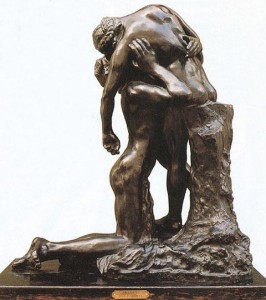Just consider that for a moment. At this point in time, it is politically, if not psychologically, necessary for adherents to an ever-shrinking ideology to castigate those among them who have passports, who live in metropolitan areas and keep an eye peeled toward world events.
Never mind that the vast majority of Americans live in urban and suburban areas. Abutting this disconnect is a series of long-tentacled myths, designed to help us reach back to that yesteryear when we were all the same, when men were men and all who weren’t knew their places. We, and others, use these affinities to tie us to the words we invent to re-enforce our affection for the products we use, all of a piece with continuing to deny the impact of our way of life on our physical environment. But of course, not only that. It is a route to that place where we don’t have to answer for ourselves or the growing list of resources we require, all the while we hunker with steely grins beneath the banner of self-sufficiency. Sure, many still reside in gated redoubts, hillbilly hideaways with supercilious names that remind of what was. But theirs is the scared and shrinking kingdom, what’s left of the fictitious fifties, still and always under siege from the tumultuous unrighteousness of ‘other’.
Persecution via this sense of ‘other’ is the desire to make change a casualty of the present moment. This is at the heart of what will nourish the xenophobic to their dying last; they seem to be willing to do anything to exempt themselves from any proximity to being an outsider of any sort – when that is where the gold is. The need to step outside of ourselves and the way we’ve been doing things, has never been greater. I’m thinking of actual, real live people here. They = we, in my book. In imagining our multitude of strengths at present, their fear is our weakness. They might try to deny my existence but I cannot but remember theirs.
“Alas,” said Pangloss, “it was love: love, the consoler of the human race, the preserver of the universe, the soul of all sensitive beings, tender love.”
“Alas,” said Candide, “I too have known love, that ruler of hearts, that soul of our soul: it’s never brought me anything except one kiss and twenty kicks in the rump. How could such a beautiful cause produce such an abominable effect on you?”
Image: Camille Claudel, Abandon, 1905. Bronze. Poitiers, Musée Sainte-Croix

